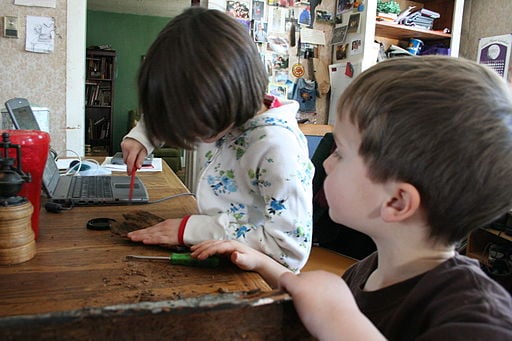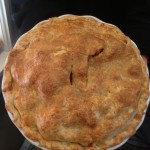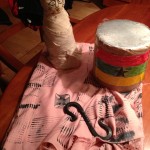How many times have you heard about the poor Pilgrims who didn’t know how to get along in their new home until Squanto showed them the way? The story where Squanto stayed with the Pilgrims and taught them how to hunt and farm and helped them interact with their native neighbors.
I’ve heard both the rosy, America-the-beautiful versions of that story as well as the White-men-are-devils versions. But it never occurred to me to ask, “Now how is it that Squanto knew English?”
And then I started reading for our new unit, Colonial America. It turns out that Squanto knew English because he had been kidnapped and taken to Europe to be sold as a slave. He eventually made his way back to his homeland, learning English along the way, only to find that his entire family had been wiped out by a disease given to his tribe by the White men who came to trade there and for which they had no natural immunity. When he walked in to the Pilgrim village, he was walking onto the land left abandoned when his tribe was wiped out by the disease.
As I was reading Squanto’s Journey to the boys today and read the words, “White men,” Ezra would shout, “That’s us!”
As the story progressed he lamented, “Oh, man, we shouldn’ta done that!”
“Nope. We shouldn’ta,” I thought. “That and so much more. This is going to be a tough semester.”
Mayflower Story II
Last week, I sat in an arena in Houston with a couple thousand people from over 100 countries, including my friend from grad school, her Malaysian husband, their bi-racial daughter, and Zach. We were there to witness the husband become a citizen.
It’s hard not to feel patriotic at those times. People dressed in African tunics, men in turbans, crying babies being comforted in a multitude of tongues. A lot of dreams coming together under one audacious dream. As the judge pronounced him a citizen, Zach and his daughter cheered vigorously.
“This is beautiful,” I thought. “It’s going to be a complicated semester.”
Mayflower Story III
Peter Gomes died last night. You may not have heard of him, but he was the minister of Memorial Church in Harvard Yard, where Jeff works as a chaplain and where we were married. Peter was a good friend to Jeff over the last twenty-seven years.
He grew up in Plymouth and wrote extensively about the Pilgrims. And tonight, I’m kicking myself that we didn’t do Colonial America last semester. We could have taken the boys to see Peter in Plymouth. He seemed to have little trouble reconciling the travesty of what happened at Plymouth with the awesome hope of what happened last week in Houston. I could use some more of his ease about the complicated, gruesome, inspiring project that is America.
Henry Louis Gates wrote a beautiful piece about Peter in the New Yorker today, in which he describes the unique way Peter navigated his way through our country and it’s history.
…As a bright child growing up in Plymouth, Massachusetts, he looked forward to the town’s annual reënactments of the arrival of William Bradford and the Mayflower Pilgrims. After one such school pageant, in which the young Gomes performed especially passionately as Bradford himself, his father, a Cape Verdean, did a quick reality check. “You don’t actually think you are descended from these people, do you?” Mr. Gomes asked his son, a little concerned. “Of course I am, father,” his son answered.
Peter [whose father was Cape Verdean and whose mother was descended from Virginian slaves] told me that, as a boy, he really did harbor the belief that he was somehow the progeny of Bradford or one of his hearty companions, a genuine descendant of the Mayflower…In an era of sometimes confining identity politics, Gomes continued to insist on his own freedom. Cape Verdean and Jewish; Virginia and Massachusetts; gay and Baptist; slave and free; a counselor to the powerful and to the powerless: Peter Gomes smoothly navigated his own Mayflower through this sea of identities…
I don’t know how smooth it was for Peter, or can be for any thoughtful American. But I sure do like the idea of navigating our own Mayflower through the highs and lows of our history. I bet he’d like it too.












